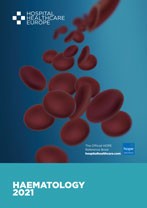Using a single-cell functional precision medicine approach for those with advanced, aggressive haematological cancers has been found to be feasible and effective approach to patient management.
A personalised approach to therapy improves progression-free survival (PFS) in patients with advanced and aggressive haematological cancers. This was the conclusion of a small study by researchers from Department of Medicine, Division of Haematology University of Vienna, Austria.
The purpose of precision medicine is to ensure that treatment is individualised and, in recent years, molecular profiling has enabled the gathering of treatment-related information to guide patient management. In the cancerous process, a normal cell undergoes a series of genomic changes leading to the production of aberrant proteins which serve as a target for molecular agents. In fact, evidence suggests that matching therapy to a genetic aberration is associated with a higher overall response rate1 and this treatment matching has already been successfully employed in some haematological cancers such as the BRAF inhibitor, vemurafenib, in hairy cell leukaemia.2
For the present study,3 the Austrian researchers took a slightly different approach and used a technique termed ‘imaged-based single cell functional precision medicine’ (scFPM). This involves removal of cells from a biopsy sample and then analysing the response of target proteins produced by these cells to a range of different anti-cancer drugs, thus helping to guide treatment-related decisions.
Patients included had aggressive haematological cancers and had received at least two standard courses of treatment prior to entry or no standard therapy options. The primary outcome of interest was the progression free survival (PFS) ratio, defined as scFPM/PFS on previous treatment, with the outcome set as a ratio value greater than 1.3 which was considered beneficial.
Findings
A total of 143 patients were enrolled, of whom 56 received treatment based on the results of scFPM and 20 received physician-directed treatment and hence served as a control. In the cohort of 56 patients, the median age was 64 years (63% male) and the median follow-up time for all patients was 718 days. Haematological cancers included acute myeloid leukaemia (25%), aggressive B-cell non-Hodgkin lymphoma (46%) and T-cell non-Hodgkin lymphoma (28%) all of which were aggressive and without a standard treatment option.
There were 30 (54%) of the 56 patients who met the primary endpoint of a PFS ratio > 1.3 with a median PFS ratio of 3.4. In other words, patients treated via scFPM guided therapy experienced a three-fold greater PFS response compared to their previous treatment. In addition, 13 (23%) of patients were progression free after 12 months on scFPM guided therapy, compared with only three on previous treatment and the objective response rate was 55% of those on scFPM guided therapy.
In discussing their findings, the authors noted that scFPM guided therapy can be easily incorporated to the clinical workflow and was of benefit to patients with late-stage blood cancer.
They concluded that this initial study has paved the way for prospective randomised trials comparing scFPM-guided therapy with comprehensive genomic profiling as a physician’s choice.
References
- Tsimberudou AM et al. Personalised medicine in a phase 1 clinical trials program: the MD Anderson Cancer centre initiative. Clin Can Res 2012;18(22):6373–83.
- Tiacci E et al. Mutant BRAF in Relapsed or Refractory Hairy-Cell Leukemia. N Engl J Med 2015;373:1733–47.
- Kornauth C et al. Functional precision medicine provides clinical benefit in advanced aggressive hematological cancers and identifies exceptional responders. Cancer Discov 2021: doi:10.1158/2159-8290.CD-21-0538.





